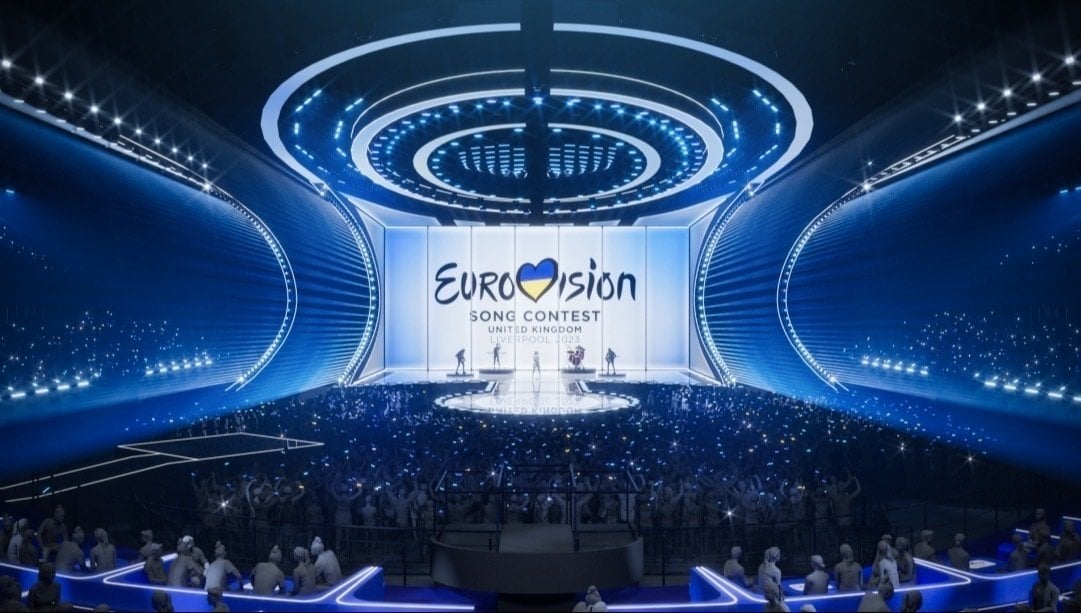How Do Viewers And Juries Vote In Eurovision?

Table of Contents
The Two Pillars of Eurovision Voting: Viewers and Juries
Eurovision's voting system relies on two equally weighted pillars: the viewer vote and the jury vote. Each contributes 50% to the final score, creating a balanced and, ideally, fair result. This dual system is a key component of what makes Eurovision so unique and, at times, unpredictable.
-
Viewers: The viewer vote represents the raw, unfiltered opinion of the audience. It reflects the songs' popular appeal, catchiness, and overall entertainment value. It's a direct measure of how much the public connects with each performance.
-
Juries: The jury vote introduces a layer of professional artistic assessment. Composed of music industry professionals, juries offer a more nuanced evaluation of the songs, considering factors like vocal performance, composition, and stage presence. This helps mitigate potential biases present in pure televoting, such as nationalistic voting or the influence of popularity alone.
-
The Perfect Balance: The 50/50 split between viewer and jury votes aims to strike a perfect balance. It ensures that both popular appeal and artistic merit are considered, leading to a hopefully representative and fair winner.
How Viewers Vote in Eurovision
Viewers participate in Eurovision voting through televoting. This typically involves calling a dedicated phone number, sending an SMS text message, or using a specific Eurovision app. The methods can vary slightly between participating countries, reflecting differing technological infrastructure and audience preferences.
-
Regional Variations: While the core principle remains the same, the specific methods of televoting can differ. Some countries may emphasize phone calls while others might favor SMS or dedicated apps. The European Broadcasting Union (EBU), which organizes Eurovision, works to ensure consistency and fairness across these different methods.
-
Safeguards Against Irregularities: To maintain the integrity of the Eurovision voting process, the EBU employs various safeguards to prevent fraud and manipulation. This includes sophisticated systems for detecting unusual voting patterns and rigorous checks on the validity of votes. These measures are crucial in ensuring a fair outcome.
-
The Voting Process: Each country can vote for any participating country except their own. Viewers typically have a limited window of time to cast their votes, usually after all performances have concluded. These individual votes are then aggregated to produce a national ranking, which is then weighted equally with the jury vote. Technological advancements continuously improve the security and efficiency of the televoting process, further minimizing the chances of manipulation.
Understanding Televoting Weighting and Aggregation
Individual viewer votes are meticulously compiled into a national ranking. This involves sophisticated aggregation techniques that account for the relative number of votes received by each song. Furthermore, a normalization process is employed to account for population differences between participating countries. This ensures that smaller countries aren't disproportionately disadvantaged compared to larger ones in the final televote scores.
The Role of Professional Juries in Eurovision
Professional juries play a crucial role in adding a layer of expert assessment to the Eurovision voting process. These juries are selected according to strict criteria to ensure diversity, impartiality, and independence from the participating broadcasters. The selection process aims to choose experienced music professionals who can provide a balanced and objective evaluation of the performances.
-
Jury Selection: Each country selects a panel of five music professionals, encompassing a range of expertise within the music industry. This ensures diverse perspectives and mitigates bias towards any specific musical style. The EBU provides guidelines to ensure a fair and transparent selection process.
-
The Jury Scoring Process: Juries score each performance according to pre-defined criteria that typically include factors such as vocal performance, stage presentation, musical composition, and artistic originality. These criteria are designed to ensure a fair and consistent evaluation of the different acts.
-
Maintaining Anonymity: Jury members remain anonymous throughout the process to eliminate any potential pressure or bias. This anonymity helps to ensure that their judgments are based purely on the merit of the performances. The final scores are kept secret until they are revealed during the live broadcast.
-
Transparency Measures: The EBU implements robust transparency measures throughout the jury voting process. This includes detailed guidelines, regular audits, and the publication of aggregate jury scores after the event, to ensure accountability and maintain the integrity of the competition.
Comparing Jury Scores and Televotes
There are often significant discrepancies between jury and televote scores, highlighting the subjective nature of artistic evaluation and the divergence between popular and critical opinions. These differences frequently lead to exciting and sometimes unexpected results, showcasing how the two voting systems offer distinct perspectives on the participating acts. The contrast between these scores can significantly influence the overall results, demonstrating the balanced and nuanced approach of the Eurovision voting system.
Conclusion
The Eurovision Song Contest's voting system, a unique blend of viewer and jury opinions, aims to ensure a fair and representative result. Understanding how both viewers and juries contribute to the final outcome provides a far deeper appreciation for the complexity and excitement of this beloved competition. While the televote captures popular opinion, the jury introduces an element of critical artistic assessment, resulting in a balanced and compelling Eurovision voting process. To further enhance your understanding, delve deeper into past voting results, comparing viewer and jury scores to grasp the dynamics at play. Learn more about the detailed Eurovision voting procedures and see how your favorite song climbed the ranks!

Featured Posts
-
 Nyt Connections Puzzle Solutions April 11 670
May 19, 2025
Nyt Connections Puzzle Solutions April 11 670
May 19, 2025 -
 Melodifestivalen 2025 Allt Om Finalens Artister Och Startordning
May 19, 2025
Melodifestivalen 2025 Allt Om Finalens Artister Och Startordning
May 19, 2025 -
 Jennifer Lawrence And Cooke Maroney Couple Spotted Amidst Baby No 2 Reports
May 19, 2025
Jennifer Lawrence And Cooke Maroney Couple Spotted Amidst Baby No 2 Reports
May 19, 2025 -
 Ufc 313 Mairon Santoss Claim Of Victory Against Francis Marshall
May 19, 2025
Ufc 313 Mairon Santoss Claim Of Victory Against Francis Marshall
May 19, 2025 -
 Michael Moralezs Quick Knockout Ufc Vegas 106 Headliner Reactions
May 19, 2025
Michael Moralezs Quick Knockout Ufc Vegas 106 Headliner Reactions
May 19, 2025
